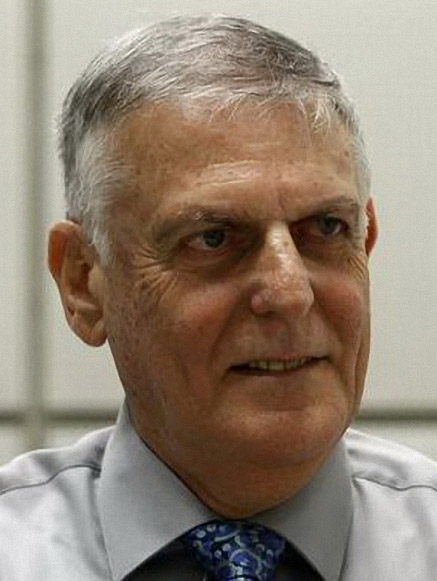Nobel winner: Turn kids into scientists
 0 Comment(s)
0 Comment(s) Print
Print E-mail China Daily, August 23, 2018
E-mail China Daily, August 23, 2018
A Nobel Prize winner announced the establishment of a science kindergarten in Qingdao, Shandong province, to encourage more youngsters to become engineers and scientists.

"We need more engineers and scientists as the economy develops. To affect young people and convince them to become engineers and scientists, we need to start as early as possible," Israeli scientist Daniel Shechtman, the 2011 Nobel Prize winner in chemistry, said on Saturday.
The kindergarten is believed to be the first of its kind in the city. The 77-year-old Shechtman is an advocate of early-stage education.
"If young people like science, more of them will become scientists, which is important to the development of China and the rest of the world. It's also a key to world peace," he added.
To date, Shechtman has led 60 science kindergartens in Israel, where the school system is emphasizing science. Even 5-year-olds can be seen in labs doing experiments on things they're interested in.
"We treat children like adults. They should know they will become serious scientists from a very early stage, and they should continue science study in primary schools and secondary school and later on in high school," he said.
Shechtman made his decision after visiting Qingdao International Academician Park with other scientists from around the world as part of the second Overseas Academicians' Qingdao Tour and Qingdao International Academicians Forum, which was held last week.
The three-day event aimed to help overseas academics learn more about China. It also promoted international scientific and technological exchanges and cooperation, according to organizers.
Shechtman was one of 49 academics who signed cooperation agreements with Qingdao International Academician Park, which is based in the city's Licang district. Their research is mainly centered on biomedicine, new-generation information technologies, high-end equipment manufacturing and new energy and new materials.
Many academics said they were impressed by the park's atmosphere of innovation and nice environment.
Launched in June 2016, the park aims to attract world renowned academics in high-level and cutting-edge technologies that are urgently needed to carry out scientific research and commercialization of research findings, according to Wang Xijing, Party chief of Qingdao's Licang district.
The park has promised to provide up to 100 million yuan ($14.5 million) to help academics start projects.
As of July, the park had attracted 108 academics, 81 of them from abroad. Sixteen projects have been commercialized, resulting in 25 kinds of products whose output value reached nearly 5 billion yuan.
Yuan Longping, called the "father of hybrid rice" in China, led a research and development center in the park, aiming to develop salt-resistant rice strains to provide more food. After its first experimental success last year, Yuan's team is now planting the rice on six plots of saline-alkali land in China. The team also succeeded in planting rice in Dubai's tropical desert in the United Arab Emirates over the summer.






Go to Forum >>0 Comment(s)